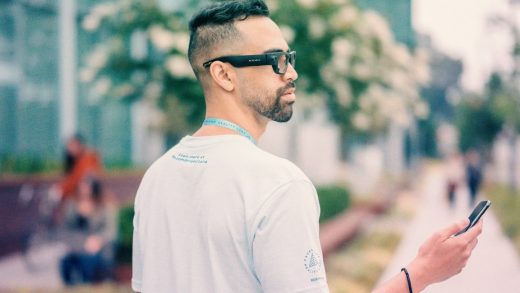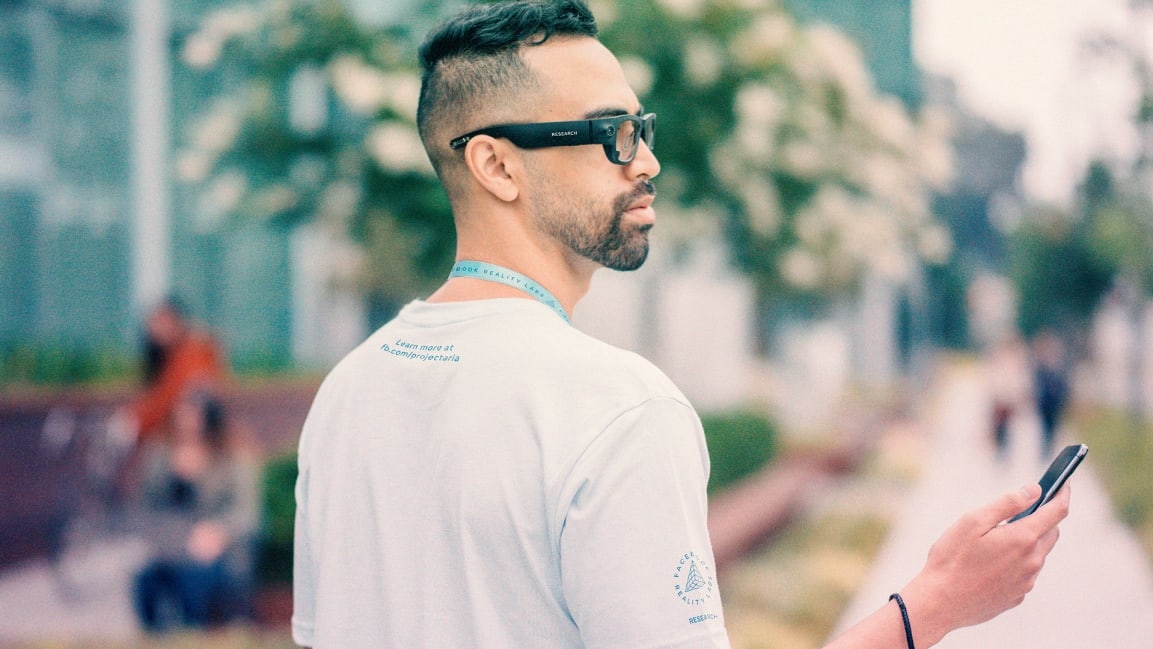Facebook employees will soon be wearing AR research glasses around town
Roughly 100 Facebook employees will soon be wearing augmented reality research glasses at work, at home, and in public in the San Francisco Bay Area and in Seattle.
These research glasses will help Facebook develop a pair of augmented reality glasses that can layer 3D graphics and information over the wearer’s view of the real world. The company hopes that the eventual device will enable virtual social interactions, like being able to have a lifelike conversation with a faraway friend who’s projected across from you at your kitchen table.
But the company still has a lot to learn about the software and sensors that will be necessary to create these futuristic interactions, which could be less than five years away. The Facebook employees participating in “Project Aria” will use their test glasses to gather data that will help the company’s researchers and engineers understand how AR can work in practice, in terms of technology and of the privacy protections users will demand.
The glasses will capture video and audio from the wearer’s point of view while collecting data from the sensors in the glasses that track where the wearer’s eyes are going.
“We’ve just got to get it out of the lab and get it into real-world conditions, in terms of [learning about] light, in terms of weather, and start seeing what that data looks like with the long-term goal of helping us inform [our product],” says Andrew Bosworth, vice president and head of Facebook Reality Labs, who is overseeing the project.
Bosworth says the company will learn what sensors are really needed on the device and how much compute power they will require. The researchers will learn how much heat the device generates and how it can be dissipated—a major issue with AR glasses design—and about the wireless capabilities that will be needed.
Because the research glasses are mainly focused on testing the cameras, sensors, and microphones that will be needed, they won’t have displays built into the lenses. With very noticeable cameras on the front reminiscent of Snap’s Spectacles, this research prototype won’t look much like the eventual product Facebook will create.
Still, Facebook says it will be very careful about how the glasses are received in public places. The wearer of the research glasses will wear a shirt that identifies them as Facebook employees working on an augmented reality research project, and it will show a website where people can get more information. The research glasses will display a noticeable white light that indicates when data is being collected, and the devices will have a physical mute button that will shut down the sensors and microphones. Facebook says the employees will never wear the glasses in sensitive places such as churches or restrooms.
“We’ll also start to think through the privacy conversation that’s going to be so important when we get to augmented reality,” Bosworth says.
The research participants won’t be able to view or listen to the raw data captured by the device. The glasses will encrypt, compress, and store data on the device until it’s uploaded to a separate, designated back-end storage system, Facebook says. And the project won’t just generate sensor data; Facebook plans to interview both the employees wearing the devices and the people they encounter in public places in the hopes that the research project will help the company develop policies and even encourage social norms around these futuristic devices for when they do hit the streets.
(10)



